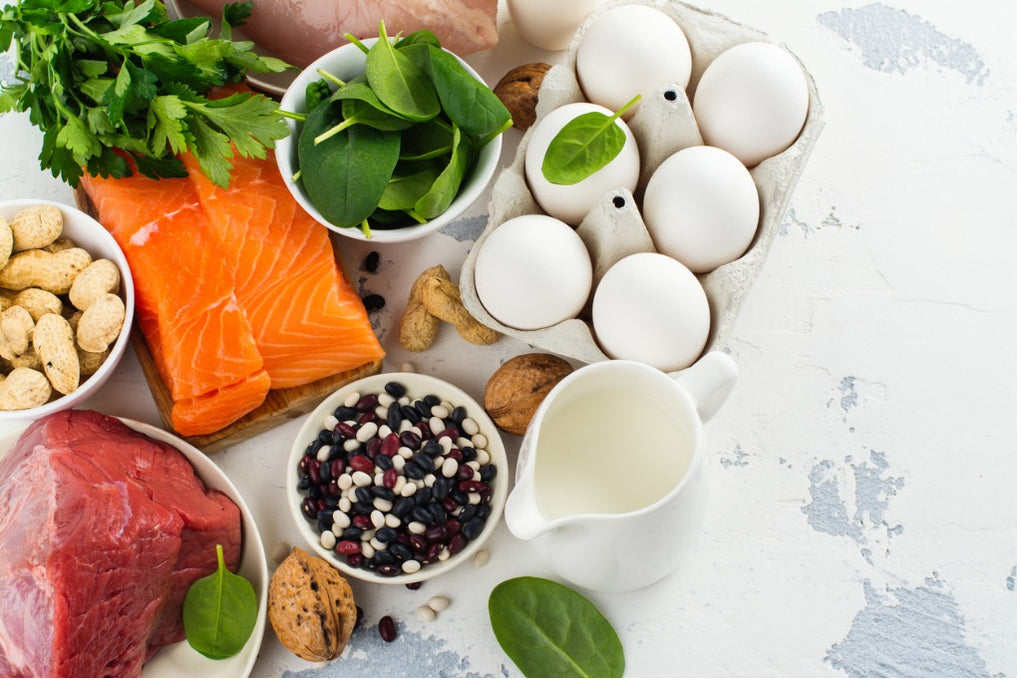The Importance of supplementing with Vitamin D this winter
13th December 2018 / Health
The Importance of supplementing with Vitamin D this winter
Zoe Milkowski

Contrary to popular belief, the term “vitamin D” actually refers to a group of fat-soluble vitamins, which play a vital role in increasing the body’s ability to absorb other essential minerals such as calcium and magnesium through the gut. Almost every cell in the human body has a vitamin D receptor and needs vitamin D to function correctly.
The natural sources of vitamin D3
The recommended nutrient intake (RNI) of vitamin D proposed by The Scientific Advisory Committee on Nutrition (SACN) for all people over the age of 4 is 10 micrograms (mcg) per day. There is insufficient data and studies available on the RNI for children under 4 years and therefore a safe recommended level has been set at 8.5-10 micrograms daily. Although various D vitamins can be ingested from the foods in our diet very few foods actually contain high enough levels of vitamin D for our needs.
|
Food |
Portion size (g) |
Vitamin D content (micrograms) |
|
Salmon, baked |
100 |
7.29 |
|
Tuna, canned |
100 |
1.07 |
|
Chicken breast |
100 |
0.20 |
|
1 boiled egg |
50 |
1.60 |
|
Fortified breakfast cereals |
30 |
1.40 |
The most important vitamin for humans in the vitamin D group is Vitamin D3 (cholecalciferol), which also has the highest bioavailability in the body. The major natural source of this vitamin actually comes from the cholesterol that we already have in our bodies. This cholesterol is converted into vitamin D3 through a photochemical reaction (the scientific term for a reaction caused by light) which occurs when our skin is exposed to sunlight. Without sunlight the reaction cannot occur and our vitamin D3 levels are at risk of becoming depleted. According to national surveys 1 in 5 of us in the UK have vitamin D levels below 25nmol/L and therefore would be classed as deficient.
Vitamin D deficiency can lead to:
- a weakened immune system
- fatigue and tiredness
- weakened bones and teeth
- severe bone pain
- poor musculoskeletal health which can lead to rickets, increasing risk of falls and poor muscle strength
All of these symptoms can be further exacerbated by cold and dark winter weather.
If we can produce vitamin D3 naturally why do we need to supplement?
The simple answer to this question is that most of us (especially if you live in the UK) do not get enough sunshine. This is even more prominent during the darker, colder winter months. With less sunlight, the vitamin D3-producing photochemical reaction cannot take place at such a high rate and the possibility of becoming D3-deficient becomes a stark reality. Unfortunately the winter sunlight in the UK is not strong enough (UVB rays) to cause the photochemical reaction needed to produce vitamin D3 in our skin, therefore trying to sunbathe during october to early march will not help the cause. To prevent deficiency the NHS recommends that everyone over the age of 1 should consider taking a daily vitamin D3 supplement containing at least 10 micrograms of vitamin D3.
Link Nutrition’s vitamin D advice
Here at Link Nutrition, we agree with the NHS on our stance towards vitamin D3 - we recommend that all of our UK customers supplement with vitamin D3 especially during the winter months. Our vitamin D3 supplement contains 25 micrograms (1000 IU) of vitamin D3. The NHS-suggested RNI of 10mcg daily is in place to ensure that people meet the absolute minimum required vitamin D levels. Our research has shown that a slightly higher level than 10 mcg daily to be the optimal amount for most people. As with all of our supplements, if in doubt, you should consult your doctor before taking any.
From The Blog
-

25th February 2025 / Health
Empowering Women’s Health: Key Supplements for Well-being
Women’s health is a lifelong journey, with each stage presenting unique nutritional and wellness needs. From maintaining energy levels to supporting hormonal balance and bone health, the right comb...
Read article -

17th February 2025 / Health
Empowering Women’s Health: Lifestyle Tips and a Key Supplement for Perimenopause and Menopause
NaomiWomen’s health evolves through various life stages, and the transition into perimenopause and menopause brings unique challenges. During these phases, hormonal fluctuations can lead to symptom...
Read article -

10th February 2025 / Health / Products
The Best Foods and Drinks to Help Your Body Recover from Burnout
Burnout is a growing issue in today’s fast-paced work culture, leaving many people feeling exhausted, overwhelmed, and depleted. While rest and self-care are essential, nutrition plays a crucial ro...
Read article




